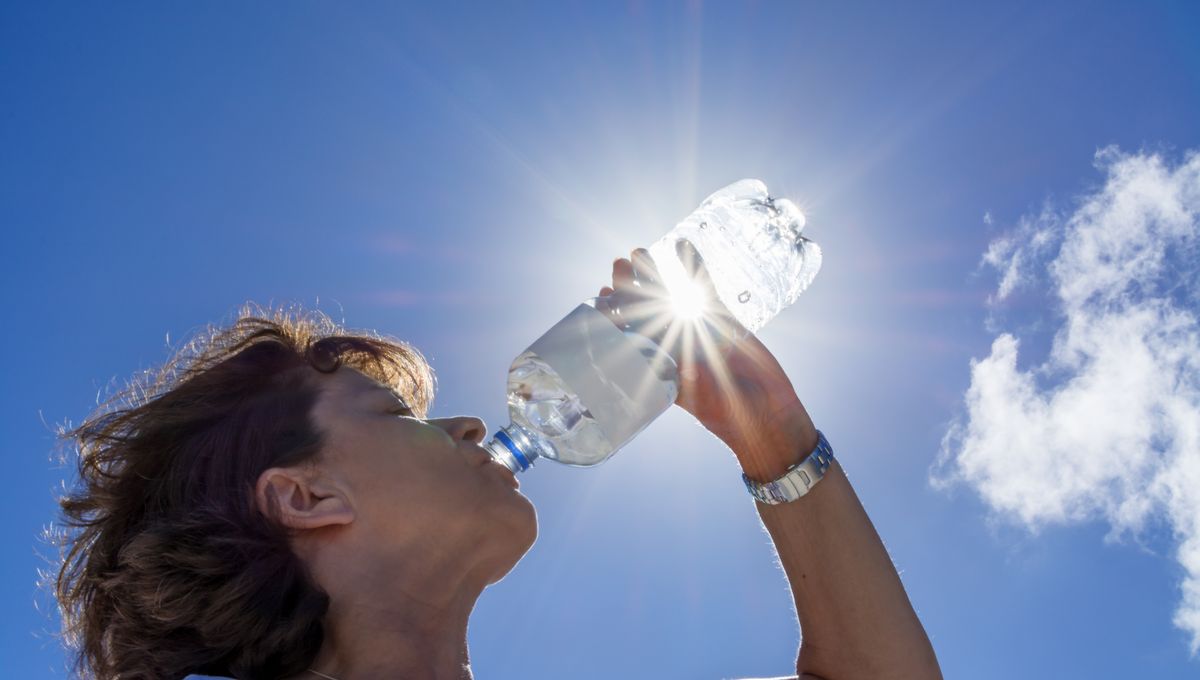
Unless you fancy gulping down a medley of potentially toxic chemicals, we suggest you keep your water bottle out of the Sun. New research has shown that plastic water bottles exposed to sunlight degrade and emit a wide variety of volatile organic compounds (VOCs).
VOCs are chemicals that easily evaporate at room temperature and can be found in many products, including fuels, solvents, paints, and cleaning products. They can also be found in plastics like the ones used to make water bottles and food packaging. Many are harmless, but some may have short- and long-term adverse health effects.
In the latest study, scientists in China exposed six types of plastic water bottles to ultraviolet-A and sunlight. They found that this process released a complex mixture of VOCs, including alkanes, alkenes, alcohols, aldehydes, and acids.
There was also some evidence of “highly toxic” VOCs, including carcinogens like n-hexadecane.
While the danger of a one-off sip of tainted water is minimal, the researchers found that prolonged exposure is potentially associated with a cumulative health risk.
“Our findings provide compelling evidence that plastic bottles, when exposed to sunlight, can release toxic compounds that pose health risks. Consumers need to be aware of these risks, especially in environments where bottled water is exposed to sunlight for prolonged periods,” Dr Huase Ou, lead researcher from the Guangdong Key Laboratory of Environmental Pollution and Health at Jinan University in China, said in a statement.
That said, the researchers were keen to point out that the risk appears to be relatively low because the amount of chemicals released from the bottle is relatively small.
“Considering the average weight of a container (approximately 20 g), the amount of VOCs volatilized from a single container was only a few nanograms. Consequently, even after long-term exposure, opening and consuming water from a bottled container poses minimal health risks to humans,” the study authors write in the conclusion.
All of the bottles in the study were made out of polyethylene terephthalate (PET) – one of the most commonly used plastics – but there were significant variations in VOC composition and concentration between the different bottles. This appears to be related to the varying production processes and differing additives.
The release of the chemicals from the bottle is likely to be caused by a process known as photodegradation, in which the structure of the plastic breaks down in response to light.
Sunlight isn’t the only thing to consider when it comes to the “health” of your plastic bottle. Previous studies have found how leaving water in a plastic bottle for just one day may allow hundreds of chemicals to seep into your drink. Some of these substances are thought to have potentially harmful effects on health, including carcinogens or endocrine disruptors that meddle with the hormonal system.
Likewise, there’s some evidence that suggests heating plastic bottles may have problematic consequences. A study in 2020 found that between 1.3 to 16.2 million microplastic particles per liter were released into babies’ bottles during the World Health Organization-recommended sterilization process.
Plastic is everywhere in the 21st century, from human penises to Antarctic ice. Once assumed to be relatively harmless, it’s becoming increasingly apparent that it’s having an unwelcome impact on us and the planet – the extent of which we are only just starting to understand.
The study is published in the journal Eco-Environment & Health.
Source Link: Sunlight Causes Toxic Chemicals To Leach Out Of Plastic Bottles